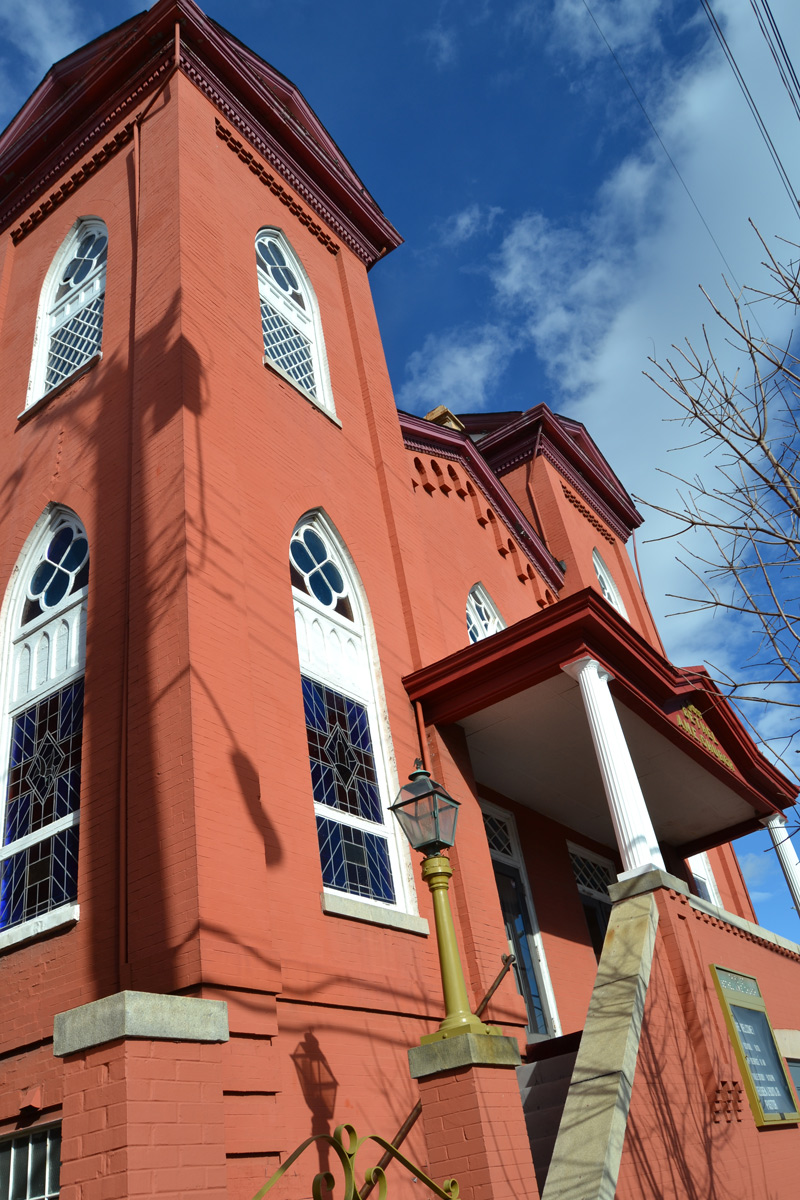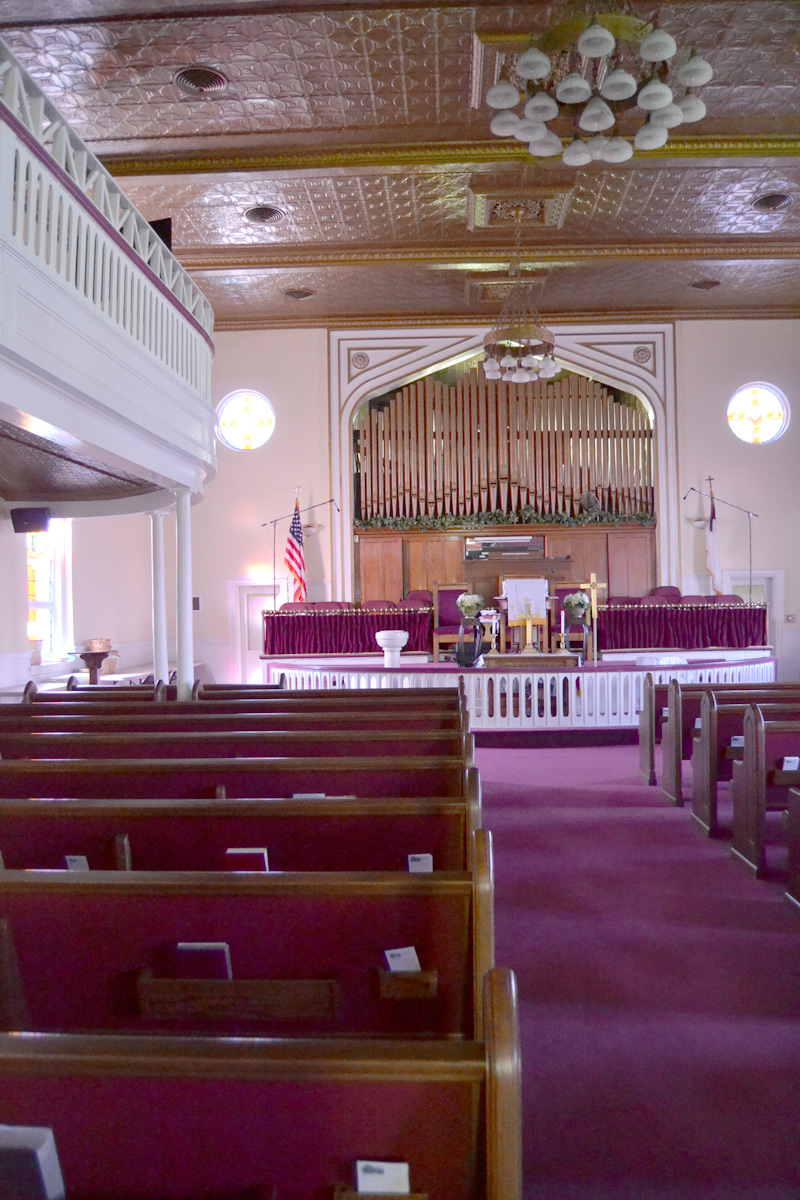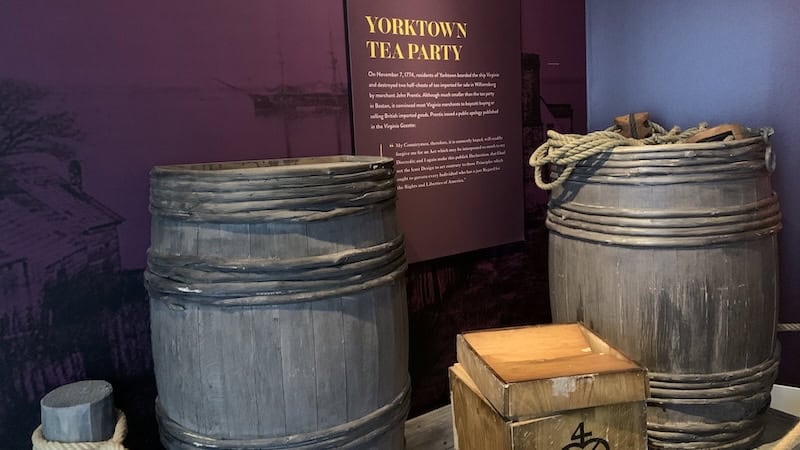Richmond African-American Church Receives Major Grant
The historic church was one of dozens of African-American Civil Rights movement sites throughout the country that the NPS awarded grant funds as part of their African American Civil Rights Grant Program, which preserves the history surrounding those sites. Boyd told me that he and his congregation feel blessed to receive the NPS grant.

From the outside, the nearly 160-year-old Third Street Bethel A.M.E Church in Jackson Ward appears to be in good shape. The Victorian Gothic brick building, which once served as a safe haven for African-Americans during the Civil Rights movement, appears freshly painted and features beautiful stained glass windows. There is no apparent distress or wear and tear.
But once you tour the original portion of the two-story church, its age becomes a little clearer.
Around the interior of the building, you’ll see sections of paint peeling off the walls due to water damage. The sealant around several colorful stained glass windows in the sanctuary is cracking. Soon, the stained glass will have to be resealed – an expensive project because the pieces must be carefully removed and replaced to protect the artwork.
Less noticeable are water damage to the roof and weakened exterior bricks from water absorbed over the years.

Repairing these problems would be costly but thanks to a $404,821.04 grant from the National Park Service (NPS), the church congregation can continue to preserve this historic church that once served as a safe haven for African-Americans to worship and organize in the community before and during the Civil Rights movement. The church’s pastor, the Rev. Reuben J. Boyd Jr., said the funds will allow the church to focus on its ministry projects instead of raising money to fund rehabilitation projects as they did recently to buy a new nearly $24,000 boiler.
The historic church was one of dozens of African-American Civil Rights movement sites throughout the country that the NPS awarded grant funds as part of their African American Civil Rights Grant Program, which preserves the history surrounding those sites. Boyd told me that he and his congregation feel blessed to receive the NPS grant. “It’s needed,” Boyd added.
Third Street Bethel A.M.E. Church qualified for the grant for several reasons, including that the church was the location where Maggie L. Walker famously spoke to the Right Worthy Grand Council of Virginia, Independent Order of St. Luke in 1901. In addition, the church’s congregation was one of the first in Virginia to join the African Methodist Episcopal (A.M.E.) denomination. According to the church’s 1975 application to the National Register of Historic Places, the building was constructed around 1857 to house  the congregation, known as Bethel African Methodist Episcopal Church. During that time, black Methodists in the South could not have full control over their church – a white priest presided over them.
the congregation, known as Bethel African Methodist Episcopal Church. During that time, black Methodists in the South could not have full control over their church – a white priest presided over them.
The Virginia A.M.E conference was established May 10, 1867 after the black congregation at St. John’s Chapel in Norfolk urged Third Street Bethel to hold a meeting where they decided to form the statewide organization, according to the application.
Boyd said the church started because its organizers were fighting against “oppressive ways.” This continues to be one of the church’s priorities as the congregation still stands up for oppressed individuals. Many of the church’s members marched and carried “Black lives matter” and “All lives matter” signs during last year’s 2nd Street Festival in Jackson Ward. The church also has hosted political debates to keep the community informed during local elections.
“It’s important that this sanctuary remains here,” Boyd said. “With the money that we received, it will help us to continue to be relevant.”


